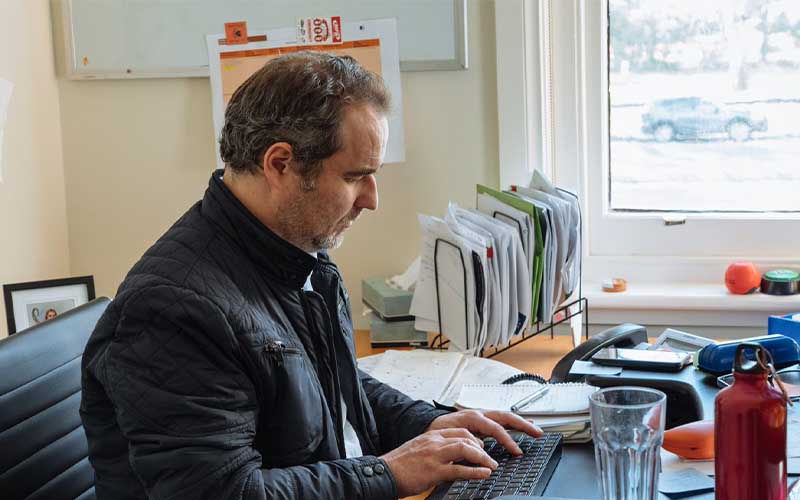Wombat Housing provides a range of free services to youth, singles and families at risk of homelessness in Melbourne’s north-west. When they reviewed how their current technology was helping staff to support their clients, it was clear they could do better. The organisation had grown, therefore the way they stored client information and the way documents and email were being managed had become inefficient.
“We're social workers and we don't understand computers very well. But we do know what we need, and we do know when things aren’t working. We also don't know what else is out there and what the possibilities are,” said General Manager, Mark Rayner.
Pre-digital transformation
After years of adding to patchwork IT and client and case management systems and finding workarounds to navigate clunky processes, Mark was eager to establish a coherent vision for how Wombat Housing could better use tech to support those in need.
“We wanted to actually start to develop [our tech] and have a key idea of who we are, what we need, where we’re going with it and how it's going to make our work easier,” Mark says.

Infoxchange worked closely with Wombat Housing to understand how the organisation operated to identify and recommend the ways they could improve their technology with a clear plan for the future.
The solutions
To help efficiently and securely manage their clients’ information and enable staff to work more efficiently, Infoxchange supported Wombat Housing to:
- Implement a new client and case management system
- Migrate their old server system across to Microsoft 365 with multi-factor authentication
- Provide ongoing flexible helpdesk support.
Digital transformation impact
The benefit of Wombat Housing’s digital transformation was already providing huge benefits in terms of more efficient use of staff time, security of data and staff capability, but these benefits proved invaluable when COVID-19 hit.
Mark reflected on the impact of these changes and realised his staff wouldn’t be able to work from home the way they do without the transformation.
“We wouldn’t have the same level of functionality that we have now. It became clear to us as the lockdowns and working from home kicked in that we could basically do everything that we could do in the office at home,” he says.
While it was challenging to get staff up to speed on the new systems and processes, Mark says his team quickly felt empowered to connect with and support clients, and each other.
“Since working from home, one-on-one tutorials from us and [assistance from] Infoxchange has really helped them feel a bit more confident with it,” Mark says.